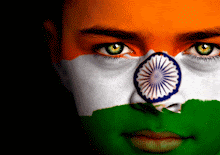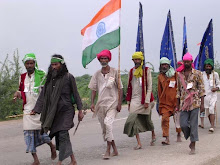The word Taliban is derived from talib, in turn from the Pashto Taliban, " students," loaned from Arabic talib,plus the Indo-Iranian plural ending -an (the Arabic plural being Tullab, Taliban being a dual form with the incongruous meaning, to Arabic speakers, of 'two students'). Since becoming a loanword in English, Taliban, besides a plural noun referring to the group, has also been used as a singular noun referring to an individual. For example, John Walker Lindh has been referred to as "an American Taliban" rather than "an American Talib."
The Taliban (Pashto: Taliban, also anglicised as Taleban; translation: "students") is a Sunni Islamist, predominately Pashtun movement that governed Afghanistan from 1996 until 2001, when its leaders were removed from power by Northern Alliance and NATO forces. It has regrouped and since 2004 revived as a strong insurgency movement fighting a guerrilla war against the current government of Afghanistan, allied NATO forces participating in Operation Enduring Freedom, and the NATO-led International Security Assistance Force (ISAF). It operates in Afghanistan and the Frontier Tribal Areas of Pakistan.
The Taliban movement is headed by Mullah Mohammed Omar. Mullah Omar's original commanders were "a mixture of former small-unit military commanders and Madrasah teachers," and the rank and file made up mostly of Afghan refugees who had studied at Islamic religious schools in Pakistan. The overwhelming majority of the Taliban movement were ethnic Pashtuns from southern Afghanistan and western Pakistan, along with a smaller number of volunteers from Islamic countries or regions in North Africa, the Middle East and the former Soviet Union. The Taliban received valuable training, supplies and arms from the Pakistani government, particularly the Inter-Services Intelligence (ISI), and many recruits from Madrasahs for Afghan refugees in Pakistan, primarily ones established by the Jamiat Ulema-e-Islam JUI.
Although in control of Afghanistan's capital (Kabul) and much or most of the country for five years, the Taliban regime, or "Islamic Emirate of Afghanistan," gained diplomatic recognition from only three states: Pakistan, Saudi Arabia, and the United Arab Emirates.
While in power, the Taliban implemented the "strictest interpretation of Sharia law ever seen in the Muslim world," and became notorious internationally for their treatment of women.
Rules for women:
From the age of eight, women were not allowed to be in direct contact with men, other than a close blood relative, husband, or in-law (see mahram) Other restrictions were:
- Women should not appear in the streets without a blood relative or without wearing a Burqa (also Burkha, Burka or Burqua).
- Women should not wear high-heeled shoes as no man should hear a woman’s footsteps lest it excite him.
- Women must not speak loudly in public as no stranger should hear a woman's voice
- All ground and first floor residential windows should be painted over or screened to prevent women being visible from the street. A Taliban representative explained that “the face of a woman is a source of corruption for men who are not related to them”.
- The photographing or filming of women was banned as was displaying pictures of females in newspapers, books, shops or the home.
- The modification of any place names that included the word "women." For example, "women's garden" was renamed "spring garden".
- Women were forbidden to appear on the balconies of their apartments or houses.
Ban on women's presence on radio, television or at public gatherings of any kind.
Dress code
Before its prescription, the burqa was just one of a choice of hijab. Its use generally occurred in urban areas to preserve female modesty and protect them from being coveted by other men The Taliban decree that the burqa must be worn on public outings was unpopular with the more cosmopolitan Afghan women, one of whom described it as "a moving prison...The Taliban want to steal my face, forbid us all our faces." Negotiating and navigating busy urban areas in a burqa could be hazardous due to impeded vision and hearing, and the voluminous cloth made the threat of exposing skin if the wearer should stumble a legitimate fear. The burqa also proved impractical for rural women as it interferes with physical work in the fields and care of livestock.
Reports state that enforcement varied between districts, as rural, nomadic and even some women in Herat suffered no negative reprisals for simply covering their heads with large scarves and leaving their faces visible. In Kabul enforcement was more stringent and physical punishment was a very real consequence for those who failed to adhere.
Brightly colored clothes were also banned as they were viewed as sexually attracting; a characteristic most unsuitable for women to display. A Taliban decree from 1996 states, 'If women are going outside with fashionable, ornamental, tight and charming clothes to show themselves, they will be cursed by the Islamic Sharia, and should never expect to go to heaven.'
Jai Hind: Rahul Vallamber






